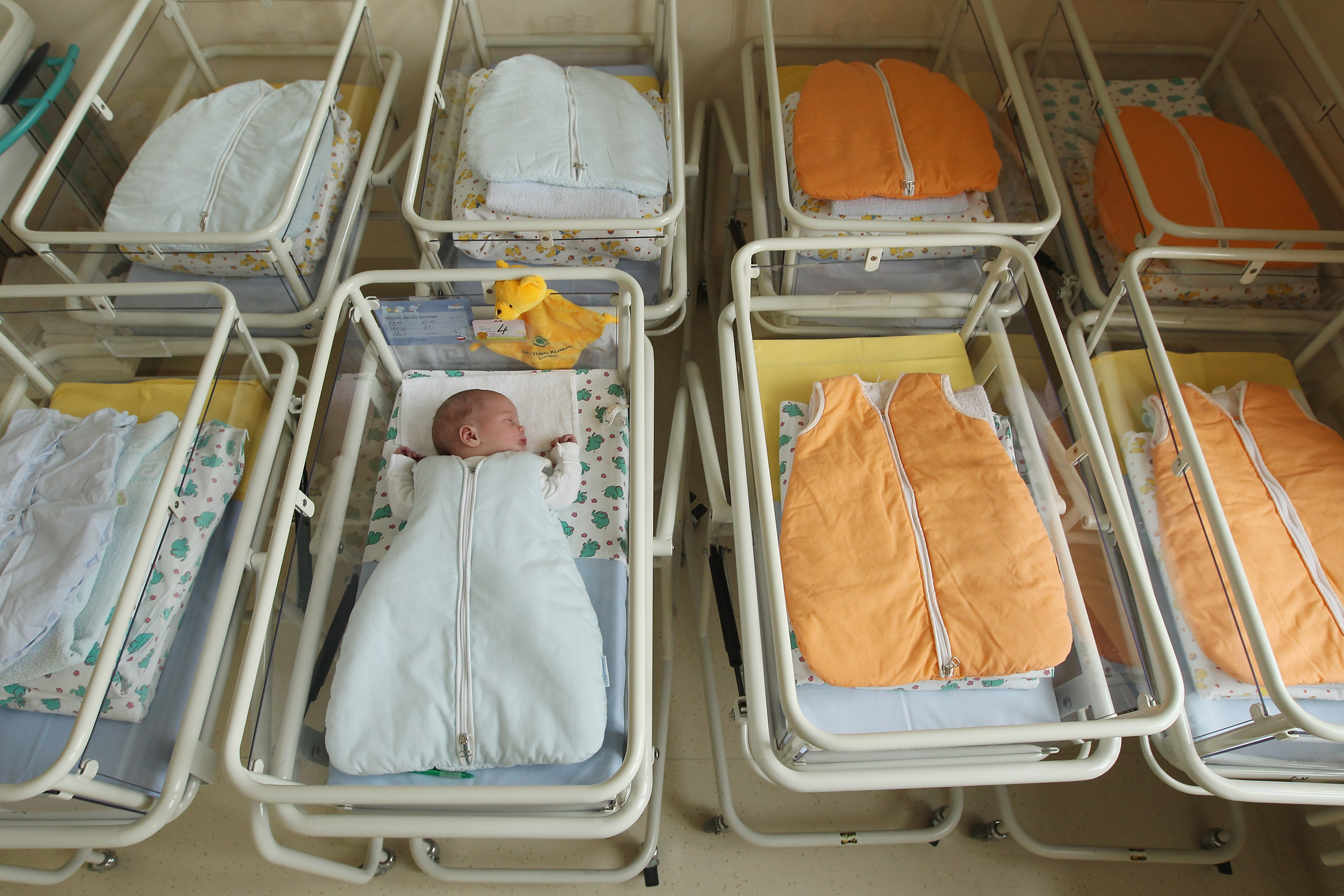Beware the baby bust
Let's make having children much easier for parents


A free daily email with the biggest news stories of the day – and the best features from TheWeek.com
You are now subscribed
Your newsletter sign-up was successful
Is the United States suffering a baby crisis? In May of last year, I predicted that one would eventually strike. But Lyman Stone argues that it's actually here already, citing initial estimates of rapidly falling fertility. Yikes!
While it's not quite as clear as Stone makes out, there are good reasons to worry about declining fertility — and even better reasons to make having children a lot easier with expansive parental benefits.
So what is a "baby bust"? That would be a sharp decline in birth rates, followed by an eventual population crash. This is a real problem. A rapidly declining population means serious political strain and competition over resources between retirees and workers. It's a problem we'd be wise to stay ahead of, as it will take decades to change if we do run into troubles. The fertility rate has fallen substantially from over two children per woman before the recession to 1.82 last year, and 1.77 so far this year, according to Stone.
The Week
Escape your echo chamber. Get the facts behind the news, plus analysis from multiple perspectives.

Sign up for The Week's Free Newsletters
From our morning news briefing to a weekly Good News Newsletter, get the best of The Week delivered directly to your inbox.
From our morning news briefing to a weekly Good News Newsletter, get the best of The Week delivered directly to your inbox.
Leslie Root cautions against jumping the gun about it, however. The basic problem is that while pregnancies among younger women (especially teens) have fallen sharply and increasing birth rates among older women have not remotely made up the gap, you can't say for sure what's going to happen to total fertility until this generation of young people have definitively passed out of their child-bearing years. There could be a delaying effect due to the prolonged recession (or something else); it will just take a long time for the data to shake out.
However, there are still good reasons to fret that a baby crunch might be on the horizon. For one, recent immigrants have traditionally propped up the average, but birthrates are falling both among immigrants and in every country which is a major source of immigrants. Perhaps more important, having children is getting steadily more difficult and expensive. Many parents (and potential parents) are trapped in a double bind where they both have to work to make ends meet, but child care is so expensive it barely pays to work. In my home of Washington, D.C., for instance, it runs to $1,886 per month on average — or about 30 percent of the median D.C. household income, before tax.
And because America (almost alone among all countries in the world) has no paid leave policy, most parents can't even stay home with their kids after giving birth for more than a few weeks. Our meager parental subsidies are largely composed of small tax breaks titled towards the rich. Even for families well into the upper-middle class, raising children is a stupendous hassle and expense.
It's frankly rather astonishing that America has managed such a high fertility rate for so long. It seems quite likely that absent some kind of serious policy reform, sheer economic coercion will ratchet us down to the average European fertility rate of 1.5 or so, and then past it into South Korea territory.
A free daily email with the biggest news stories of the day – and the best features from TheWeek.com
But the most compelling reason for parental policy is about freedom. Having a family is one of the fundamental human experiences, and it should be available to all regardless of income. Americans should be free to have the kind of families that they desire. That means ready access to abortion and contraception, but it also means a complete welfare state so that anybody can have a child if they like and not fall into poverty.
So what can be done? First and most obviously, paid parental and sick leave of 16 weeks at least. Parents need time to recover from childbirth and to bond with their new baby. (It wouldn't touch Sweden's 480 days of leave, but it's a start.) Second, a child allowance of $300 per month per child, paid for by abolishing all the rich-tilted tax breaks for parents. (This alone would also cut child poverty by about 42 percent). Third, universal pre-K, to advance the age when kids can be off at school during working hours. Fourth, a network of subsidized federal child care centers — perhaps akin to the one operated by the Pentagon, scaled-up for the whole country.
A decent country is welcoming to families and the childless alike. It's long since time the United States reached the basic European standard of parental support, if not surpassed it. The next generation of Americans will thank us for it.
Ryan Cooper is a national correspondent at TheWeek.com. His work has appeared in the Washington Monthly, The New Republic, and the Washington Post.
-
 Quiz of The Week: 14 – 20 February
Quiz of The Week: 14 – 20 FebruaryQuiz Have you been paying attention to The Week’s news?
-
 The Week Unwrapped: Do the Freemasons have too much sway in the police force?
The Week Unwrapped: Do the Freemasons have too much sway in the police force?Podcast Plus, what does the growing popularity of prediction markets mean for the future? And why are UK film and TV workers struggling?
-
 Properties of the week: pretty thatched cottages
Properties of the week: pretty thatched cottagesThe Week Recommends Featuring homes in West Sussex, Dorset and Suffolk
